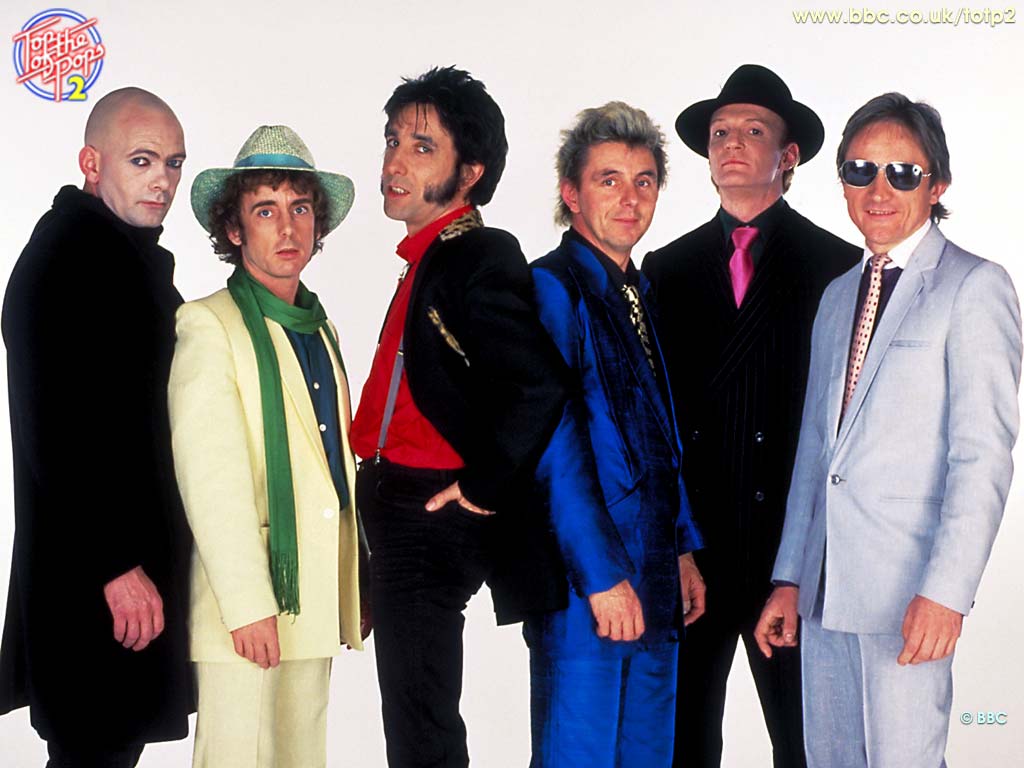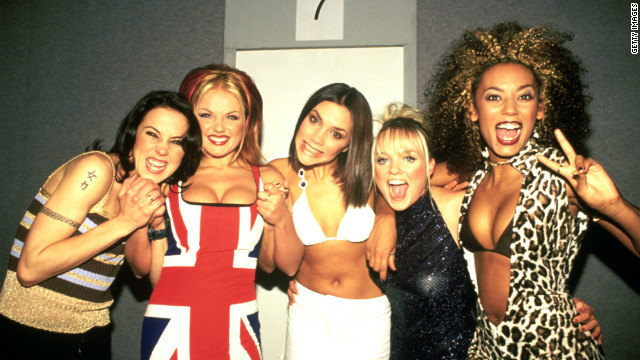Here’s one of my cardinal rules, one which comes into great effect during my favorite month of the year, December—it is impossible to watch the movie Love Actually and not feel better about life by the end of the running time. I watch this film every Christmas and am always left in a mix of hysterics and eyes welling up all over, and so many of my friends and family feel the same. Not a bad reaction in America for a movie as thoroughly British in its own way as Michael Powell and Emeric Pressburger’s classics. It’s that characteristic which I’m using as the jumping-off point for my Christmas contribution to the Addison Recorder, one which fulfills our mission of bringing cultural singularity to your attention, for something not many people may realize is that one of the multiple plots in Love Actually involves a long-standing British holiday tradition.
The most purely fun section of the film, in my humble opinion, is near-forgotten, legend-in-his-own-mind rock star Billy Mack’s (the transcendent Bill Nighy) attempt to get back to the top of the pop charts with his cloying “Christmas Is All Around” single. Throughout the storyline, much is made of how Mack is dueling the real-life boy band Blue to have the number-one single in Britain on Christmas Day itself—which is a point lost on most Americans. We don’t particularly care what song is #1 in Billboard on Christmas week; it’s the same as every other week. But in the United Kingdom, having the #1 song on Christmas is akin to winning a Grammy award for Record of the Year or selling ten million singles and downloads of a song. Whatever song is #1 on Christmas is usually the biggest-selling single in the country that year, and small fortunes are won and lost as people actually wager on what song will take the top spot; not the usual subject for Las Vegas bookmaking.
Despite my Anglophile status, I am the last person who could explain this phenomenon, but if a theory needs to be propounded, here it is. England is a nation with centuries upon centuries of tradition, and being very tiny in proportion to its international level is even more closely knit than most nations. Add in the uniquely Christian character of a land with its own official church, and Christmas, the holiday that trumps all others in terms of tradition, takes on even more significance.
England has always been proud of its culture, but as technology and globalization bring the world closer together and increasingly mingle our boundaries of influence, being able to participate in a shared but uniquely British phenomenon becomes something important, even powerful. The Christmas number-one first became a prominent feature in England in the 1970s, right before the communication revolution, and I would say that the Britons have clung to it and built it up all the more as an experience which anyone can participate in and enjoy during a time of the year when the country feels connected and closer. It’s hard to gather around and watch the same television event at the exact same time on the BBC or ITV, and getting the whole country out to the movies would be a miracle, but a four-minute pop song is something everybody has time for!
Moreover, since this is again a purely British affair, the songs which hit number-one are occasionally silly, but nowhere near as ridiculous as those songs featuring the simplest English lyrics for a mass global audience found in Eurovision.
So despite increasing commercialism and a few downright bizarre selections (Benny Hill topping the charts in 1971?), the Christmas number one in England is a fascinating, entertaining, and often surprising affair worth getting a bit sentimental over. As Jayne Douglas of the BBC once wrote, the Christmas #1s are an integral part of modern British life, a source of distinct childhood memories, plenty of adult fun, and a yearly boom for the record industry: the 2011 #1, “Wherever You Are” by the Military Wives, sold 556,000 copies in a single week. If we increased that number in proportion to America’s population, that would be 2,750,000 copies…something NO ARTIST has accomplished in years.
To take up the rest of this introduction, here are a few moments of greatness and oddness among the Christmas #1s which the Addison Recorder, or at least this writer, found interesting.
Merry Christmas, Everybody!
And on that note…
Slade (1973)
Slade is one of the great British rock groups, a deafeningly loud blast of guitars mixed with Noddy Holder’s biting vocal style and a knack for a hook: they wrote and recorded “Cum On Feel the Noize” a decade before Quiet Riot made it a staple of the 1980s. By December 1973, they had racked up five number-one hits over less than three years. England was not in as good shape as Slade; the country at that time, crippled by economic troubles and a series of strikes, was about to institute a period in which people could only use electricity three days a week. The band decided, Holder later told the Daily Mail, to write a Christmas song as something to lift people’s spirits, and Holder and bassist Jim Lea came up with the music and lyrics for “Merry Xmas Everybody” with its joyous chorus “Look to the future now, it’s only just begun” in less than a day. “Merry Xmas Everybody” remains one of the most enduring and beloved songs in the United Kingdom, and more importantly, when it and “I Wish It Could Be Christmas Everyday” by Wizzard were released concurrently, it skyrocketed the significance of being the number-one single on Christmas in the same way the 1958 Colts-Giants sudden death game made the NFL giant for America. And if you think you haven’t heard this song, you might be wrong…it has been used in the final episode of The Office and four different episodes of Doctor Who, among others.
Mud (1974)
I had to mention this one for a very particular reason. The simply, delightfully-named Mud had eleven top ten hits in the seventies, fusing David Bowie-style glam with an obsession for 1950s rock and roll. The one song of Mud’s that endured is “Lonely This Christmas,” an over-the-top number which allowed singer Les Gray to share his Elvis Presley impersonation with the world. “Lonely This Christmas” made no impact in America, so imagine this writer’s surprise when, during the past month of football games on TV, he found the song was now the background music for Buick’s ad campaign for their Lacrosse.
Flying Pickets (1982)
For everybody who loves a capella music of the highest quality.
Band Aid
Boy George and George Michael disliked each other so much they kept their distance in the studio. Status Quo brought the cocaine. Writer-producers Bob Geldof and Midge Ure struggled over arranging the vocals and stayed up for 24 hours to finish the mix. But we don’t hear that in the final version of “Do They Know It’s Christmas?” We hear Sting, Simon Le Bon, a pre-superstar Bono wailing, and the mass chorus over the final bars, and we love the legacy of Band Aid. It’s a legacy which transcends “We Are the World” and Live Aid, for “Do They Know It’s Christmas?” ended up topping the charts two more times. In 1989, the mega-production team of Stock/Aitken/Waterman (the men behind “Never Gonna Give You Up” among many others) assembled stars such as Kylie Minogue, Jason Donovan, Wet Wet Wet, Lisa Stansfield, and others as Band Aid II and rocketed it back to the top spot. And in 2004, Chris Martin and Nigel Godrich decided to re-record the song for the twentieth anniversary of the original Band Aid. Geldof and Ure soon joined forces with the effort, and a lineup as equally high-powered as the 1984 original: a mammoth number of vocalists, plus Radiohead, Supergrass, The Darkness, and Paul McCartney as the backing band. I happened to be in Europe when the single was released and saw the video premiere on VH1….I was stunned to see Dizzee Rascal add a rap in the middle of the song and Bono reprise his 1984 part with a far more growling vocal, but the song still retains its charms and, sadly, its importance, as famine and poverty still reign over much of Africa.
No matter who’s singing “Feed the world” or how much cocaine and wine got consumed, “Do They Know It’s Christmas?” in all its forms is a fine reminder of the spirit of giving when we should be reminded of it.
Mr. Blobby (1993) and Bob the Builder (2000)
Only a few pure Christmas songs have ever topped the British charts at Christmastime (including Johnny Mathis’s lovely “When a Child Is Born.”). Most Christmas #1s are pure pop songs, though some add Christmas sound effects to create some holiday spirit (such as East 17’s “Stay Another Day” from 1994, actually a step above the average high school girl-aimed ballad). But then there are the total novelty songs which aren’t Christmasy or poppy. Two prime examples:
Mr. Blobby, a giant pink creature from the popular show Noel’s House Party (hosted by Noel Edmonds, who went on to be the original host of Deal or No Deal) whose gimmick was to run around the set yelling “Blobby” while destroying everything in his path and annoying the celebrity guest in the process (You had to be there, I guess.), had its theme song top the charts in 1993. And seven years later, Bob the Builder’s “Can We Fix It?” got to #1. Thinking of Benny Hill and the St. Winifred’s School Choir and the Military Wives in tandem with these two, the answer to the question “Can you hit #1 for Christmas in Britain?” should be answered “Yes we can!”
The Spice Girls (1997-1999)
We remember the costumes, the movie, and the uptempo dance songs, but the Spice Girls and their management also were pretty darn brilliant, at least when it came to watching the market with a savvy eye. Knowing that emotions run high during the holidays, the Spices notched up three straight Christmas #1s by waiting until December to show off their skills with a ballad: specifically “2 Become 1,” “Too Much,” and “Goodbye.” Only one other band ever pulled off the December threepeat…take a guess who.
Two Interlopers: Michael Andrews and Gary Jules (2003) and Rage Against the Machine (2009)
Since Bob the Builder, a certain tendency has dominated the Christmas #1 competition: the winners TV singing competitions have frequently been pushed to the top spot, including five winners alone from the original version of Simon Cowell’s The X Factor. Treacly covers of well-known material have thus almost become the norm. But the Christmas competition still has room for surprises.
In 2003, Michael Andrews and Gary Jules’s haunting, spare interpretation of “Mad World” by Tears For Fears was released as a single following the peak of the Donnie Darko cult: as most of our readers may know, this number forms the sonic backdrop for the final scenes. The song unexpectedly caught fire in Britain and went to #1 for the holidays. But if the major theme from an incredibly confusing movie about time travel, sex, and a giant rabbit who might be evil was an unlikely chart-topper, what about a song whose chorus repeats the line “f**k you, I won’t do what you tell me” continually?
After four winners of The X Factor had taken the Christmas prize from 2005-2008, a campaign sprung on Facebook to try to get a song as unlike X Factor as possible to the number-one spot, specifically “Killing in the Name,” Rage Against the Machine’s 1992 anti-racism thrashfest. When the campaign began to have an effect, it got a startling publicity boost when Simon Cowell himself criticized the ringleaders, only to have Dave Grohl, Paul McCartney and even competitors on The X Factor declare their support for the endeavor. “Killing in the Name” handily hit #1 as people bought the song in droves, not even put off by an uncensored BBC performance. Rage Against the Machine, in keeping with the message of their music, donated the royalties from the Christmas sales rush to charity and played a free concert in London as a thank you.
(Incidentally, the following year saw the fifth winner of The X Factor in six years reach #1, although Matt Cardle had an excellent record, the best of the series by far, with his cover of “Many of Horror” by Biffy Clyro…only he renamed the Scottish rock band’s song “When We Collide” after the opening line in the chorus, probably because a pop song called “Many of Horror” doesn’t sound right by the mistletoe.)
The Beatles and Sir Cliff Richard
Only fitting to close with the biggest of the big in British pop music history, who both reached the top spot on four occasions.
The Beatles were on top of the summit three years in a row, over three decades before the Spice Girls pulled it off, from 1963 to 1965 (for “I Want to Hold Your Hand,” “I Feel Fine,” and “Day Tripper”/”We Can Work It Out”), took a backseat to Tom Jones in 1966, then came back one last time in 1967 as “Hello, Goodbye” proved a perfect capstone to the year of Sgt. Pepper.
Considering that this is the Beatles, it’s not surprising they reached these heights, but what is surprising is a certain facet of Paul McCartney’s life at Christmas time. If there’s one Beatle we could imagine loving Christmas, it’s Sir Paul, who spent years being a family man in a backcountry farm when not out writing incessantly brilliant melodies, and he has contributed to an unprecedented seven number ones – the four Beatles cuts, the original and 20th Band Aid singles, and “Mull of Kintyre,” his bagpipe-laden paean to the simple life that became the biggest-selling single in British history as it conquered the Christmas charts in 1977. But none of that is the big surprise…the real shocker is that Paul’s insipid piece of dreck (one of his ONLY insipid pieces of dreck, to be clear), “Wonderful Christmas Time,” was NOT a #1 hit.
(Seriously, if I ever hear those stupid synthesizers and monotone vocals again, I will break every speaker in the room.)
(Also seriously, Sir Paul’s brother Mike gives the McCartney clan a grand total of EIGHT Christmas #1s, for in 1968 his own experimental pop group The Scaffold took the honors with their sing-along rendition of the turn of the century drinking song “Lily the Pink,” a tune that not only features Elton John on piano but also manages to make the phrase “medicinal compound” swing.)
And then, and last, there is Sir Cliff Richard.
If you’ve never heard of Cliff Richard, his resume in America surpasses many acts: he notched up three top-ten singles, one of them a million-seller, between 1976 and 1980, a far better record than the vast majority of those who try to make an impact on Billboard. But compare that to England, where Cliff is more than an institution: his tally includes 130 top twenty singles, albums, and EPs, 21 of which hit number one, and at age seventy-two, he has already released four top ten singles and six top ten albums in the UK over the past decade alone. I would personally ranks Sir Cliff with Sinatra, Elvis, and the Beatles as having one of the most genuinely perfect pop singing voices, one which handles lush romantic numbers and roaring old-school rockers with equal aplomb, as well as his own beloved Christian music. That combination pretty much made him a natural for Christmas songs.
His first #1 was a straight-up non-Christmas song simply titled “I Love You,” recorded with his equally legendary backing group The Shadows (featuring Hank Marvin, whose guitar playing influenced generations). But in the late 1980s, to conclude a decade in which his hits were consistently of the highest pop quality, he recorded “Mistletoe and Wine,” a track from an obscure musical for which he commissioned new lyrics from the writers to make it equally secular and religious. “Mistletoe and Wine” became England’s biggest selling single of 1988…and on a personal note, the favorite Christmas song of a certain Mr. Andrew Rostan which doesn’t involve chestnuts roasting on an open fire. Even if you’re not a Christian, “Mistletoe and Wine” is a song which sums up the way we all try to feel on Christmas: the romance, the celebration, the feeling that the world could indeed be one of peace.
Richard hit #1 at Christmas the next two years as well, first as part of Band Aid II in 1989, then in 1990 with “Saviour’s Day,” which in all honesty is “Mistletoe and Wine’s” annoying and obnoxious cousin, saved to the tiniest degree by the genuine feeling Richard gives it. And he almost had five…in 1999, “The Millennium Prayer” was at #1 the week before Christmas before boy band Westlife took it down…and it would have joined the ranks of “Mr. Blobby” as the most I-don’t-know-what-this-is single ever if it had reached the summit.
That’s my guided tour through a very Anglophile Christmas tradition. We at the Addison Recorder wish you the happiest of Holiday seasons. And we leave you with the extraordinary voice of Nat King Cole, singing the one and only Christmas song I can never get enough of.

















